Cargando...
Recursos educativos
-
Nivel educativo
-
Competencias
-
Tipología
-
Idioma
-
Tipo de medio
-
Tipo de actividad
-
Destinatarios
-
Tipo de audiencia
-
Creador
-
Summaries - The Animal Kingdom (I). Invertebrates
EduBook Organización
- 2811 visitas
1. The simplest invertebrates The most common invertebrates are sponges, cnidarians, flatworms, nematodes, annelids, molluscs, echinoderms and arthropods. Sponges are aquatic animals. They act as…
-
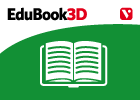
-
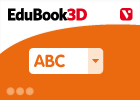
Final self-evaluation 10.01 - The Animal Kingdom (I). Invertebrates
EduBook Organización
- 2693 visitas
Are the following sentences true or false? Sponges are aquatic animals that filter water to obtain food. Jellyfish are a type of sponge. Cnidarians have venomous cells that paralyse their prey.…
-
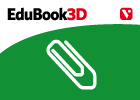
Simple eggs and complex eggs
EduBook Organización
- 2692 visitas
All eggs protect and provide food for the zygote, and later the embryo. However, there are big differences in size and structure between simple eggs, like frog eggs, and complex eggs, like chicken eggs.…
-
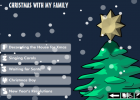
Christmas with my family
Educarex Organización
- 2053 visitas
Set of activities designed to help us learn/revise vocabulary related to the family and Christmas (food, presents, resolutions, carols, etc). We practice grammar (past simple tense, future simple…
-
Before you start - The natural environment. Ecosystems
EduBook Organización
- 2638 visitas
Most of the energy used by living things originally comes from sunlight which is trapped by autotrophs (or producers). This energy is then transferred from the producers to all other living things…
-
Check what I know
EduBook Organización
- 1 lo usan
- 2458 visitas
Answer true or false: The physical environment consists of living things. → There are four important elements in the physical environment. → The air contains minerals. → Plants need…
-
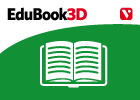
End-of-unit activities - The economic organisation of society
EduBook Organización
- 2503 visitas
Everything that we consume, such as houses, food and clothes, has been through a variety of processes that have involved human activity. We call the different processes that occur during the production…
-
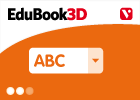
True/false. Characteristics of plants
EduBook Organización
- 2495 visitas
Are the following sentences true or false? Plants are unicellular organisms. The branching structure of roots helps plants to absorb water and nutrients. Plants are capable of making their own food. All…
-
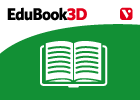
Te estamos redirigiendo a la ficha del libro...













